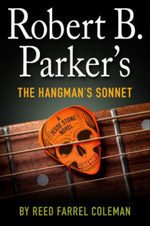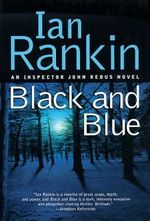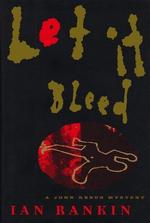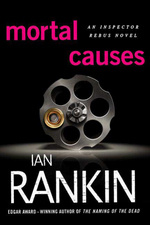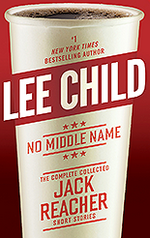 IQ
IQ
by Joe Ide
Series: IQ, #1
Hardcover, 321 pg.
Mulholland Books, 2016
Read: September 18 – 19, 2017

The book opens with a criminal in the making, and a very slapstick-y incident. But even while grinning about that, you get the sense that this character isn’t going to be good for more laughs. He’s not — but thankfully, we don’t have to spend a lot of time on him, because Isaiah Quintabe (a.k.a. IQ) finishes his blossoming criminal career. Which is very effective way to introduce Isaiah, the unlicensed investigator, and his world to readers.
After this, we spend some more time with our modern-day Sherlock of South Central LA. He needs money, not another case that he takes on in return for some homemade cookies or something, he’s got a couple of big bills heading his way and requires cash to take care of things. His need for an infusion of cash forces him to align himself with a former friend (there’s a very good reason for that “former”) with a tie to a well-paying client. The client is a famous rapper who is convinced that someone is trying to kill him — he happens to be right, I should add, which makes the book a lot more interesting. (obviously, an investigator looking into a paranoid delusion isn’t going to be as action-packed as one looking into a person actually trying to kill someone). This investigation will bring Isaiah and Dodson into the not-as-lucrative-as-it-used-to-be music industry, into marital problems, petty jealousies, and a whole lot closer to pit bulls than at least one of them wants to be. The case is at once a showcase for Isaiah’s talents and something almost too complex for him.
We also get a series of flashbacks to the events that set Isaiah on this path, how he honed his natural abilities and inclinations to become the man he his — an unlicensed PI that helps out people in his neighborhood, many of whom wouldn’t turn to the authorities. So often with a Sherlock-type character, we just get the finished product — the Great Detective at the height of his powers, knowing all sorts of arcane information. But Ide shows us how Isaiah gets this information, how he earned it, improved his reasoning and observation skills. Also the why behind it all — why didn’t Isaiah take his genius into something that would make him more money? Why does he stay where he is? The flashbacks also show us Dodson and Isaiah meeting and falling out.
The two stories intertwine and are pretty equally intriguing, which is a real bonus.
There’s what seems to be an authenticity to the world Ide portrays — honestly, what do I know about the realities of LA? But it sure feels real, so either way, I guess Ide did his job. The characters — all of them, the good, the bad, the creepy, the slimy and everyone else are wonderfully conceived and executed. The crimes depicted are varied sophisticated (making them worth Isaiah’s time) — and at least one method of assassination is something I’ve never seen before. Ide does a great job of balancing the moods at work, the grim, the hopeful, the silly and all points in between.
There’s a passage in this book that is one of the best brief pieces of writing I’ve read this year, period. As I reread it (at least 5 times), I kept thinking of the Fiction Writing professors I had in college that would’ve made us study it for at least one class session. It’s during the “origin” portion, where Isaiah’s Geometry teacher is explaining inductive reasoning — these four paragraphs give you a strong character, setting, tone, a minor character (and even a brief storyline), a good idea what she looks like, her past, her relationship with her husband — and you get a good working definition of inductive reasoning, too! It’s really great.
This year (most recently, last week), I’ve also talked about another modern Sherlock — Victor Locke. How would I compare the two of these? There’s some similarities, and more than a few differences. At the end of the day, Victor Locke is a lot more amusing and entertaining. Isaiah, on the other hand, I could believe was real (I know he’s not, don’t worry). Isaiah is driven, he’s brilliant, he’s proud, he’s haunted, he has no obvious addictions (phew! wonderful change), he’s a bit more grounded than your typical Holmes-type. Dodson is the least John Watson-y Watson-figure you’ve ever seen, more of a hindrance than an assistant. Thankfully, also he’s not a narrator, and I’m not sure I could’ve handled a book from his point-of-view. It’s hard to summarize, but he works really well in this role.
I thoroughly enjoyed this book from beginning to end, with not a dull moment in between. Isaiah Quintabe is a keeper, and I’m already counting the days until his next book.
—–




